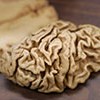Expectant mothers who dealt with the strain of a hurricane or major tropical storm passing nearby during their pregnancy had children who were at elevated risk for abnormal health conditions at birth, according to a study led by a Princeton University researcher that offers new insights into the effects of stress on pregnancy.








Recent Comments